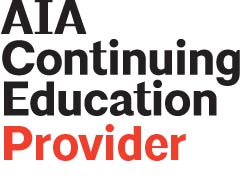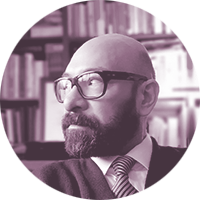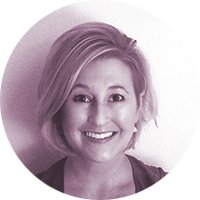
ACADIA 2020 | DISTRIBUTED PROXIMITIES | October 24-30, 2020 | Online + Global
Contact
2020@acadia.org
https://www.instagram.com/acadiaorg/
https://www.facebook.com/ACADIAconference/
https://twitter.com/acadiaorg
About ACADIA
ACADIA was formed for the purpose of facilitating communication and critical thinking regarding the use of computers in architecture, planning and building science. The organization is committed to the research and development of computational methods that enhance design creativity, rather than simply production, and that aim at contributing to the construction of humane physical environments. A particular focus is education and the software, hardware and pedagogy involved in education. Please visit the main ACADIA website for more information.
ACADIA 2020 Theme
Abrupt shifts due to the global pandemic have precipitated myriad experiments in remoteness, improvised virtual communities, and rapid retooling to address novel urgencies. These circumstances provide an opportunity to reflect upon practices and priorities, to recognize the interdependent coevolutionary nature of our planet, society, and built environment, and to collectively re-imagine alternate futures.
Acknowledging the volatile disruptions of normal routines, Distributed Proximities aims to explore the complex contours of the moment by privileging operative modalities and their (re)organizational logics. The term “distributed computing” refers to any parallel computation process that partitions a complicated task into discrete quanta. Originally relying upon an operating system architecture with physically separated processing nodes, the system’s connected array structure is the source of its robustness. In the current state of forced semi-autonomy, a remarkable simulacrum has emerged: diverse, ad hoc adaptations—academia fragmented, distributed research, bottom-up fabrication—that demonstrate the resilience and ingenuity of the computational design community in the face of crisis.
With this reality as a point of departure, Distributed Proximities invites contributions of recent and emerging work in computational design innovation and culture. In addition to completed research, this year we encourage the submission of work that is in-process, behind-the-scenes, recently initiated, and in-formation.
ACADIA 2020 will be an entirely virtual event, featuring peer-reviewed, juried, and curated content, published proceedings, as well as live discussions and activities that aim to radically open up the conversation around computational design and its critical dialogues.
Continuing Education
ACADIA is pleased to offer conference and workshop attendees the opportunity to earn AIA Learning Units while attending this year's conference. For more information, see the Continuing Education page.

Conference Chairs

Viola Ago
ACADIA 2020 Conference Co-Chair
Wortham Fellow, Rice University School of Architecture (link)
Director, MIRACLES Architecture
(link)
Bio:
Viola Ago is an architectural designer, educator, and practitioner. She directs MIRACLES Architecture and is the current Wortham Fellow at the Rice University School of Architecture. More recently, Viola held the Christos Yessios Visiting Professorship at the Knowlton School of Architecture at OSU and the William Muschenheim Design Fellowship position at the Taubman College of Architecture, University of Michigan. Viola has also previously taught at Harvard’s GSD, RISD School of Architecture, and SCI-Arc. She earned her M.Arch degree from SCI-Arc, and a B.ArchSci from Ryerson University in Toronto. Prior to teaching, Viola worked as a lead designer in the Advanced Technology Team at Morphosis Architects in Los Angeles.
Viola’s work has been exhibited in Los Angeles, Boston, Houston, Ghent NY, San Francisco, Miami, Columbus, Ann Arbor, and Cincinnati. Her written work has been published in Log, Wiley’s AD Architectural Design Magazine, Routledge’s Instabilities and Potentialities Book, Sci-Arc’s Offramp, Acadia Conference Proceedings, TxA Emerging Design and Technology Journal, JAE Journal, Architect’s Newspaper, and Archinect. Viola held a digital fabrication residency at the Autodesk Build Space in Boston, a University Design and Research Fellowship with Exhibit Columbus, and an artist residency at the MacDowell Colony.

Matias del Campo
ACADIA 2020 Conference Co-Chair
Associate Professor of Architecture, University of Michigan Taubman College of Architecture and Urban Planning
Principal, SPAN
(link)
Bio:
Dr. Matias del Campo, a registered architect and designer, is an associate professor of architecture at the University of Michigan’s Taubman College of Architecture and Urban Planning. He is best known for the application of contemporary technologies in architectural production. His award-winning architectural designs are informed by, computational methodologies (Artificial Intelligence, Algorithmic Modeling), contemporary theory and philosophical inquiry. In 2003, he co-founded (with Sandra Manninger) the architectural practice SPAN in Vienna. SPAN gained wide recognition for its winning competition entry for the Austrian Pavilion at the 2010 Shanghai World Expo, as well as the new Brancusi Museum in Paris.
SPAN’s work was featured at Venice Biennale in 2012; at ArchiLab 2013 in Orléans, France; at Architecture Biennale in Beijing in 2008 and 2010; and in the solo show, “Formations,” at the Museum of Applied Arts (MAK) in Vienna in 2011. In 2017, SPAN’s work was shown in a solo exhibition at the Fab Union Gallery in Shanghai. Most recently, del Campo was awarded the Accelerate@CERN Fellowship, served as technical chair of the ACADIA Conference, and guest-edited an issue of Architectural Design.
He earned his Master of Architecture from the University of Applied Arts Vienna and his PhD from the Royal Melbourne Institute of Technology.

Shelby Elizabeth Doyle
ACADIA 2020 Conference Co-Chair
Assistant Professor of Architecture, Iowa State University
Co-Director, ISU Computation & Construction Lab
(link)
Bio:
Shelby Elizabeth Doyle, AIA is a registered architect, co-founder of the ISU Computation & Construction Lab (CCL), and an assistant professor of architecture at Iowa State University where she teaches design studios and seminars in digital technology. Her education includes a Fulbright Fellowship to Cambodia, a Master of Architecture from the Harvard Graduate School of Design, and a Bachelor of Science in Architecture from the University of Virginia.
The central hypothesis of her research, and of the CCL, is that computation in architecture is a material, pedagogical, and social project; computation is both informed by and productive of architectural cultures. This hypothesis is explored, through the fabrication of built projects, writing, exhibition, and material explorations. The CCL is invested in questioning the role of education and pedagogy in replicating existing technological inequities, and in pursuing the potential for technology in architecture as a space of and for gender equity.

Adam Marcus
ACADIA 2020 Conference Co-Chair
Associate Professor of Architecture, California College of the Arts
Director, Variable Projects
(link)
Bio:
Adam Marcus is a licensed and registered architect and educator. He directs Variable Projects, an independent architecture practice in Oakland, and he is a partner in Futures North, a Minneapolis-based public art collaborative dedicated to exploring the aesthetics of data. Adam is an Associate Professor of Architecture at California College of the Arts in San Francisco, where he teaches design studios in computational design and digital fabrication, co-directs the Architectural Ecologies Lab, and collaborates with CCA’s Digital Craft Lab. From 2011 to 2013, Adam was Cass Gilbert Assistant Professor at University of Minnesota School of Architecture, where he chaired the symposium “Digital Provocations: Emerging Computational Approaches to Pedagogy & Practice.” He has also taught at Columbia University and the Architectural Association’s Visiting School Los Angeles. Adam is a graduate of Brown University and Columbia University’s Graduate School of Architecture, Planning and Preservation.

Brian Slocum
ACADIA 2020 Conference Co-Chair
Adjunct Professor, Universidad Iberoamericana
Founder, tresRobots
(link)
Bio:
Brian Slocum holds a Master of Architecture from the Graduate School of Architecture, Planning and Preservation of Columbia University and a Bachelor of Science in Architecture from Georgia Tech. He is currently an Adjunct Professor in the Department of Architecture, Urbanism and Civil Engineering at the at the Universidad Iberoamericana in Mexico City, where he teaches a design studio entitled Exogenous Protocols//Endogenous Properties (#prexpren), which focuses on analog material research employing computational and performative design strategies. Brian is the founder of tresRobots, an independent studio for design and architectural technologies research and co-founder of the architecture firm Diverse Projects, with offices in the United States and Mexico; he is licensed in the State of New York. In 2008, Brian was the recipient of an Individual Research Grant for ad hoc infrastructures from the New York State Council on the Arts. He was also a participant in the group exhibition Landscapes of Quarantine at Storefront for Art and Architecture in 2009-2010, where he presented Context/Shift, a prosthetic piece installed on a door panel in the gallery designed by the architect Steven Holl and the artist Vito Acconci. Brian has also contributed essays to the journal CLOG andPamphlet Architecture #23: MOVE Sites of Trauma, by Johanna Saleh Dickson. Brian currently serves as the Secretary for the Association for Computer Aided Design in Architecture (ACADIA), and was Conference Co-chair for ACADIA 2018 Mexico City, Recalibration: On Imprecision and Infidelity.

Maria Yablonina
ACADIA 2020 Conference Co-Chair
Assistant Professor, John H. Daniels Faculty, University of Toronto
(link)
Bio:
Maria Yablonina is an architect, researcher, and artist working in the field of computational design and digital fabrication. Her work lies at the intersection of architecture and robotics, producing spaces and robotic systems that can construct themselves and change in real-time. Such architectural productions include the development of hardware and software solutions, as well as complementing architectural and material systems in order to offer new design spaces.
Maria’s practice focuses on designing machines that make architecture: a practice that she broadly describes as Designing [with] Machines (D[w]M). D[w]M aims to investigate and establish design methodologies that consider robotic hardware development as part of the overall design process and its output. Through this work, Maria argues for a design practice that moves beyond the design of objects towards the design of technologies and processes that enable new ways of both creating and interacting with architectural spaces.
Maria has been commissioned and exhibited by institutions including Milan Design Week, Ars Electronica(Linz), Kapelica Gallery (Ljubljana), The Cooper Union, and the Moscow Institute of Architecture. She has also collaborated internationally on research with both universities and companies, including Autodesk Pier 9 (San Francisco), ETH Zurich, WeWork (New York), and the Bartlett School of Architecture (London).
Technical Assistants
Jiries Alali, California College of the Arts
Pablo Espinal Henao, Daniels Faculty of Architecture, Landscape and Design, University of Toronto
David Kalman, Daniels Faculty of Architecture, Landscape and Design, University of Toronto